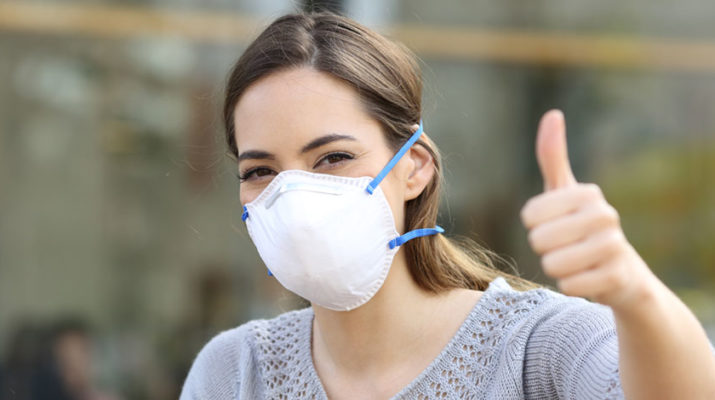By Kimberly Blaker
The alarming rate at which COVID-19 has swept the world has left researchers little time to discover all we need to know about the illness other than that it’s both highly contagious and deadly.
Researchers, doctors and governments as of mid April recommend we all stay home and avoid mingling with anyone who doesn’t live in the same household. When we must go out, we should keep at least six and a half feet away from others to prevent the spread of the illness.
Unfortunately, we must still leave our homes for essentials. So how can we keep ourselves and others safe?
The CDC and Gov. Cuomo now recommend wearing a cloth mask whenever we leave our home and are around others. Many cities have joined in and are making efforts to enforce wearing masks in public. Even many stores now require employees and customers to wear masks or cover their faces while in the establishments.
How masks help
Current studies indicate COVID-19 spreads mainly between people in close proximity through respiratory droplets from coughing, sneezing and even talking. The incubation period between exposure and showing symptoms can range between two to 14 days. A significant number of people are also asymptomatic or have mild symptoms. Yet they can still spread the disease to others who may be affected more severely.
The primary purpose of wearing a cloth mask is to prevent spreading the virus to others because anyone may have it and not experience symptoms. Since it’s transmitted through respiratory droplets, keeping our noses and mouths covered helps contain the droplets preventing the spread to others.
Social Stigmas
Both those who wear masks and those who don’t may experience social stigma related to the covers. Earlier recommendations that only those who are symptomatic wear masks may lead some people to assume anyone wearing a mask is infected with the virus. As a result, those wearing masks may be treated differently by some individuals. On the other hand, many people are following the latest guidelines that everyone wears masks to prevent the spread of the virus. Those who are wearing masks may, therefore, see those who aren’t as either irresponsible or lacking regard for the welfare of others.
It’s impossible to control how others think and behave. So we must each make responsible choices that are not only in our own best interest but also for the safety of those around us. Each of us can do our part by following the CDC guidelines. At the same time, whether someone around you is wearing a mask or not, try not to pre-judge, since you don’t know their situation.
Because wearing a mask is so new, it may feel strange at first, especially if others aren’t wearing one. In all likelihood, though, you won’t be the sole person wearing a mask when you’re out. Plus, the more people wear them in public, the more that’ll join in the battle to eradicate the virus, until it becomes the new norm.
Recommended protocols
Currently, there’s a severe shortage of N95 respirators and surgical masks for healthcare workers and first responders who are regularly being exposed. So the CDC does not recommend the general public wear these medical-grade masks.
Cloth masks, however, are easy to make at home. Tutorials and videos are available on the CDC website, among many other websites and social media pages with instructions on how to make various designs.
You can also buy masks online from the many companies and individuals now selling premade cloth masks.
When making or buying masks, make sure they:
• snugly cover your nose and mouth
• are secured with ties or loops
• have multiple layers
• are easy to breathe through
• can be machine washed after each use
It’s also vital to wash your hands immediately after removing your mask and machine wash it after each use to remove viral droplets that may have landed on the mask.

